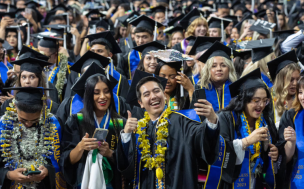While none of those mistakes are good things, there are three more basic, and less obvious, mistakes that I have seen applicants make over and over again – and these mistakes can be fatal for your application essay:
1. Not understanding the questions
For their 2016-2017 MBA application, Yale School of Management has just a single essay prompt: “Describe the biggest commitment you have ever made”. If you don’t take the time to really understand what this question is asking for – and give some serious thought to your answer – then you will not do well on this essay.
Yale is a school that cares deeply about encouraging leaders who care about business and society. All of the top business schools are looking for leadership potential in their applicants. But for Yale, the society part is equally important.
So if you’re thinking through what commitment to discuss for your Yale application essay, it would be valuable if you were able to discuss something that showed a commitment or usefulness to society – as opposed to a commitment that is strictly about making more money or benefiting only yourself.
In other words, for Yale, commitment doesn’t just mean “saying you will do something and following through”, it means something more like committing to a purpose or a cause. When you sit down to write your MBA application essays, you need to think about the questions they are asking on a deeper level. What are they really getting at? What do they really want to know?
2. Not researching your target schools
For their second required essay for the 2016-2017 MBA application, Dartmouth Tuck asks, “As a diverse and global community, our students arrive at the same place from many different paths. Tells us about an experience in which you have had to live, learn, and/or work with other people very different from yourself. What challenges and/or opportunities did you experience, how did you respond, and what did you learn about yourself as a result?”
Tuck is a more remote school than somewhere like Columbia, in the middle of everything. When you’re at Tuck, you’re at Tuck.
With their essay prompt, the admissions committee is looking for candidates who won’t be stifled by that kind of atmosphere – and who will be engaged, valuable members of the Tuck community. They want to see whether you’re someone who is accustomed to taking advantage of, and participating in, the communities you’re a part of, or whether you’re someone who prefers to go your own way.
Cultural dexterity is the ability to adapt to your environment and move in and out of cultures fluidly. The Tuck essay wants to get at the fine details of how well you’ll get along in the program. What is your actual international or multi-cultural experience?
When you choose an example for your MBA essay that resonates with the school’s brand and mission, that is a big plus. That’s what makes it so vital to do your research and understand the school’s brand before you begin. What they’re looking for is to understand more about you, and whether your values align with theirs.
3. Not giving every application your all
Application fatigue is real. If you're working full time, studying for the GRE or the GMAT, and trying to pull together transcripts and recommendation letters, of course you're going to be exhausted when it comes time to writing your application essays.
Once you’ve done an essay or two, it’s tempting to start copying and pasting for subsequent schools, or at least rehashing the same examples you’ve already used and thought through. The problem is that the schools you are applying to can vary in very significant and also subtle ways. When you are applying to top business schools, where the competition is both fierce and numerous, you just can’t afford to skip an opportunity to demonstrate your understanding of the school culture and mission.
Ultimately, you need to remember that the application essay is not about seeing how great a writer you are. What the admissions committee wants to know is who you are, how well you understand their school and what they're looking for, and how well you can convey your ideas. Your judgment navigating all these aspects matters a great deal.
Chioma Isiadinso is an education entrepreneur and co-founder/CEO of EXPARTUS, the first MBA admissions consulting firm to integrate personal branding into every aspect of the MBA admissions process.
She's also a former Harvard Business School admissions officer and the author of the Best Business Schools' Admissions Secrets.
Chioma publishes on the topics of personal branding, leadership development and business school admissions for college students, young professionals, entrepreneurs and executives.
RECAPTHA :
ea
41
1a
e0








